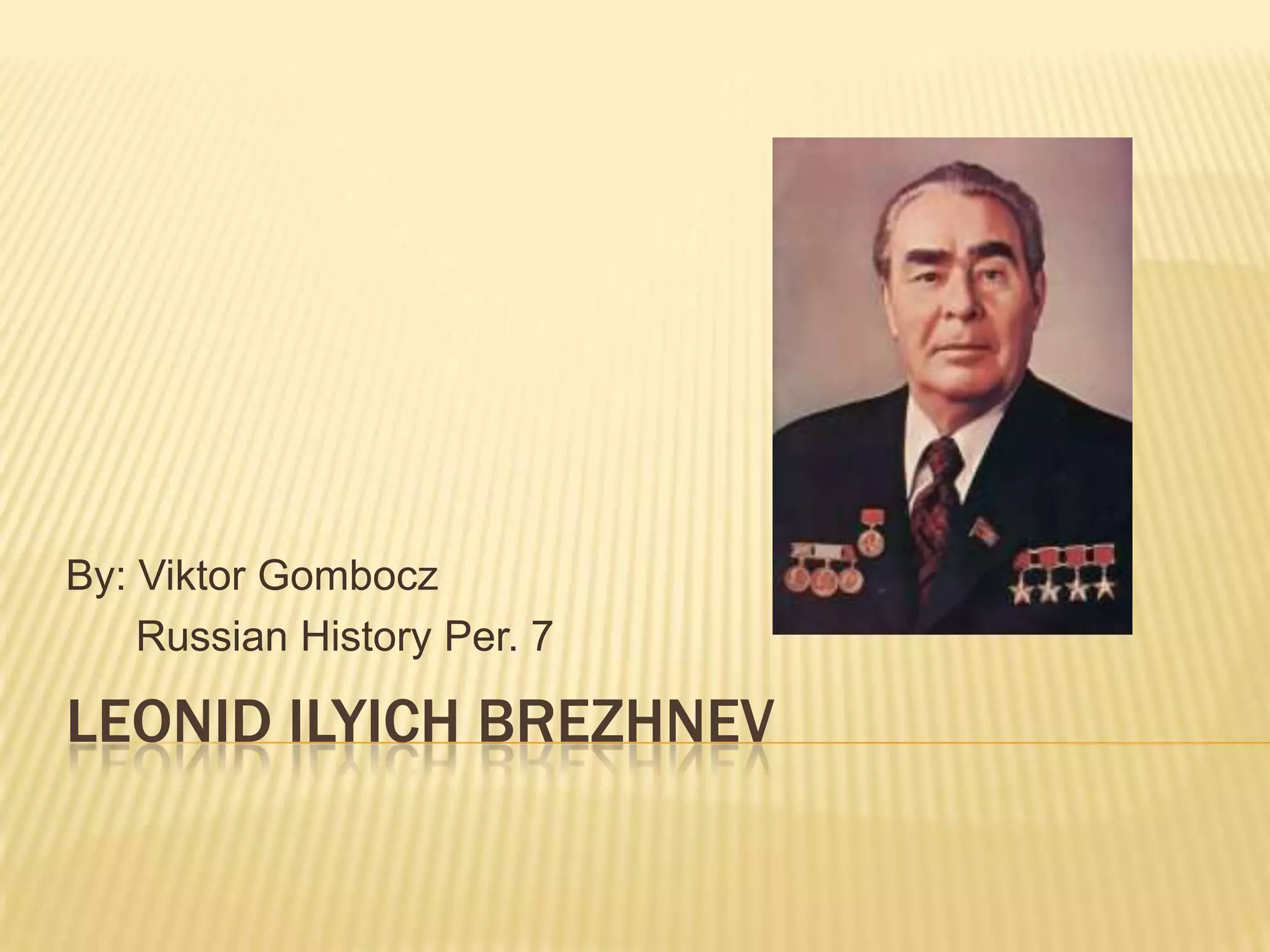Leonid Brezhnev was a Soviet leader who served as General Secretary from 1964 until his death in 1982. He reversed some liberalization under Khrushchev and cracked down on dissidents. Brezhnev pursued détente with the US, signing arms agreements but tensions increased after the Soviet invasion of Afghanistan. Domestically, the economy stagnated under Brezhnev despite increased military spending. He died in 1982 after 18 years in power as the Soviet system increasingly showed signs of weakness.

















